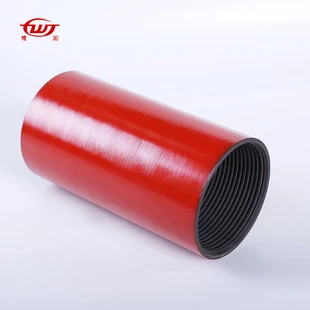- Afrikaans
- Albanian
- Amharic
- Arabic
- Armenian
- Azerbaijani
- Basque
- Belarusian
- Bengali
- Bosnian
- Bulgarian
- Catalan
- Cebuano
- Corsican
- Croatian
- Czech
- Danish
- Dutch
- English
- Esperanto
- Estonian
- Finnish
- French
- Frisian
- Galician
- Georgian
- German
- Greek
- Gujarati
- Haitian Creole
- hausa
- hawaiian
- Hebrew
- Hindi
- Miao
- Hungarian
- Icelandic
- igbo
- Indonesian
- irish
- Italian
- Japanese
- Javanese
- Kannada
- kazakh
- Khmer
- Rwandese
- Korean
- Kurdish
- Kyrgyz
- Lao
- Latin
- Latvian
- Lithuanian
- Luxembourgish
- Macedonian
- Malgashi
- Malay
- Malayalam
- Maltese
- Maori
- Marathi
- Mongolian
- Myanmar
- Nepali
- Norwegian
- Norwegian
- Occitan
- Pashto
- Persian
- Polish
- Portuguese
- Punjabi
- Romanian
- Russian
- Samoan
- Scottish Gaelic
- Serbian
- Sesotho
- Shona
- Sindhi
- Sinhala
- Slovak
- Slovenian
- Somali
- Spanish
- Sundanese
- Swahili
- Swedish
- Tagalog
- Tajik
- Tamil
- Tatar
- Telugu
- Thai
- Turkish
- Turkmen
- Ukrainian
- Urdu
- Uighur
- Uzbek
- Vietnamese
- Welsh
- Bantu
- Yiddish
- Yoruba
- Zulu
what is a bull plug used for
What is a Bull Plug Used For?
A bull plug, often referred to as a sealing plug or a blanking plug, is a specialized tool widely used in various industrial and mechanical applications. Its primary function is to seal the end of a tubular or pipe system, preventing the escape of fluids or gases. This article delves into the various uses, benefits, and types of bull plugs that are commonly found in different industries.
Understanding the Bull Plug
At its core, a bull plug is designed to fit snugly into a pipe or fitting, creating a tight seal. It prevents leakage, which is crucial for maintaining the integrity of systems that transport liquids or gases. Bull plugs are made from various materials, including metals, plastics, and rubber, and come in different sizes and configurations to fit a multitude of pipe diameters. Their versatility allows them to be used in plumbing, heating, cooling, and even in automotive applications.
Applications of Bull Plugs
1. Plumbing and Water Systems In residential settings, bull plugs are commonly used in plumbing systems to seal off unused outlets or caps in piping. This prevents water from leaking out and helps maintain water pressure in the system.
2. HVAC Systems In heating, ventilation, and air conditioning (HVAC) systems, bull plugs are used to seal ports during maintenance or when certain sections of the system are not in use. This sealing capability allows technicians to work on the system without the risk of air or refrigerant leaks.
3. Hydraulic and Pneumatic Systems In more complex machinery like hydraulic and pneumatic systems, bull plugs are crucial for ensuring that pressurized fluids remain contained within specified areas. They are especially important during system testing or repairs, as they allow for components to be isolated without losing pressure.
what is a bull plug used for

4. Automotive Use Bull plugs are utilized in various automotive applications, particularly in fuel and coolant systems. They help prevent leaks in fuel lines or coolant passages, which is essential for vehicle safety and performance.
5. Industrial Equipment In manufacturing and production environments, bull plugs are used to maintain efficiency. They can temporarily seal off parts of machinery that are undergoing maintenance or to test the integrity of systems before they go live.
Benefits of Using Bull Plugs
The use of bull plugs offers numerous advantages. Primarily, they provide an effective barrier against leakage, which helps maintain system efficiency and safety. By preventing leaks, bull plugs also reduce the risk of damage to surrounding equipment or the environment. Furthermore, their ease of installation and removal makes maintenance tasks more efficient and less time-consuming.
Types of Bull Plugs
Bull plugs come in different forms depending on their application. For instance, threaded bull plugs are designed to screw directly into a port, while push-fit bull plugs offer a simpler installation without threads. Additionally, some bull plugs are designed with features like O-rings or gaskets to enhance sealing capabilities.
Conclusion
In summary, bull plugs are essential components in various systems, providing reliable sealing and preventing leakage. Their application spans across multiple industries, including plumbing, HVAC, automotive, and manufacturing. Understanding the uses and benefits of bull plugs can help professionals maintain efficient and safe operations. Whether in residential plumbing or complex machinery, the importance of these small but mighty devices cannot be overstated.
-
Tubing Pup Joints: Essential Components for Oil and Gas OperationsNewsJul.10,2025
-
Pup Joints: Essential Components for Reliable Drilling OperationsNewsJul.10,2025
-
Pipe Couplings: Connecting Your World EfficientlyNewsJul.10,2025
-
Mastering Oilfield Operations with Quality Tubing and CasingNewsJul.10,2025
-
High-Quality Casing Couplings for Every NeedNewsJul.10,2025
-
Boost Your Drilling Efficiency with Premium Crossover Tools & Seating NipplesNewsJul.10,2025







